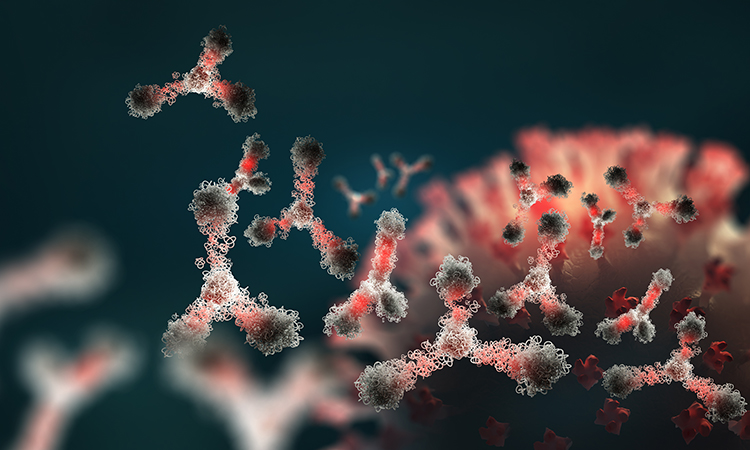Cross-reactive antibody could form basis of broad coronavirus vaccine
Posted: 28 May 2021 | Victoria Rees (Drug Target Review) | No comments yet
Researchers have discovered a cross-reactive coronavirus antibody that could aid in the development of a broad-acting vaccine or treatment.


In a new study, scientists from Scripps Research, US, have investigated how the immune system’s previous exposure to cold-causing coronaviruses can impact immune response to COVID-19. In doing so, they discovered one cross-reactive coronavirus antibody that is triggered during infection from SARS-CoV-2.
According to the team, the findings will help in the pursuit of a vaccine or antibody treatment that works against most or all coronaviruses.
“By examining blood samples collected before the pandemic and comparing those with samples from people who had been sick with COVID-19, we were able to pinpoint antibody types that cross reacted with benign coronaviruses as well as SARS-CoV-2,” said senior author of the study, Dr Raiees Andrabi.
Biomarkers aren’t just supporting drug discovery – they’re driving it
FREE market report
From smarter trials to faster insights, this report unpacks the science, strategy and real-world impact behind the next generation of precision therapies.
What you’ll unlock:
- How biomarkers are guiding dose selection and early efficacy decisions in complex trials
- Why multi-omics, liquid biopsy and digital tools are redefining the discovery process
- What makes lab data regulatory-ready and why alignment matters from day one
Explore how biomarkers are shaping early drug development
Access the full report – it’s free!
Using electron microscopy, the team investigated how the cross-reactive antibody is able to neutralise a range of coronaviruses. They saw that it mostly binds to the base of the virus’s Spike (S) protein, an area that does not change much from strain to strain.
In later tests, the researchers found that the antibody also neutralised SARS-CoV-1, the coronavirus that causes severe acute respiratory syndrome (SARS).
“We were able to determine that this type of cross-reactive antibody is likely produced by a memory B cell that is initially exposed to a coronavirus that causes the common cold and is then recalled during a COVID-19 infection,” said Andrabi.
The team say that memory B cells are an essential part of the immune system as they “remember” initial disease threats and can circulate in the bloodstream for decades. These cells are responsible for producing targeted antibodies.
“Another deadly coronavirus will likely emerge again in the future and when it does, we want to be better prepared,” said Professor Dennis Burton, whose lab the research was conducted in. “Our identification of a cross-reactive antibody against SARS-CoV-2 and the more common coronaviruses is a promising development on the way to a broad-acting vaccine or therapy.”
Burton’s lab is also investigating broadly neutralising antibodies that can be harnessed to protect against many forms of influenza, another virus likely to cause a pandemic in the future.
The study is published in Nature Communications.
Related topics
Antibodies, Biopharmaceuticals, Immunology, Molecular Targets, Therapeutics, Vaccine
Related conditions
Covid-19, Severe Acute Respiratory Syndrome (SARS)
Related organisations
The Scripps Research Institute
Related people
Dr Raiees Andrabi, Professor Dennis Burton








